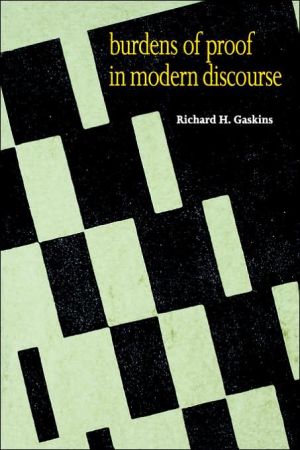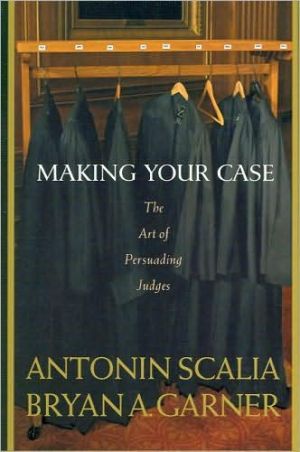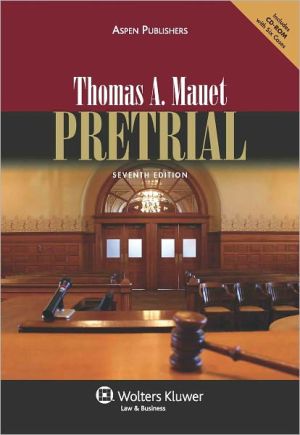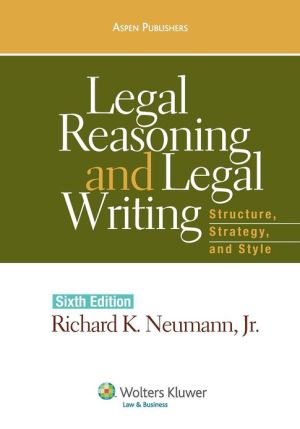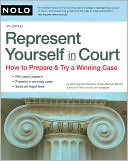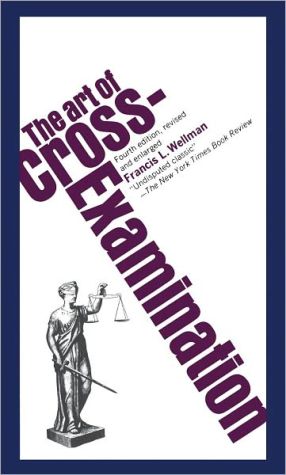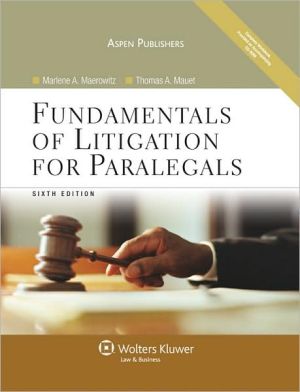Burdens of Proof in Modern Discourse
This legal, philosophical, and rhetorical study by Richard H. Gaskins provides the first systematic treatment of arguments-from-ignorance across a wide range of modern discourse-from constitutional law, scientific inquiry, and moral philosophy to organizational behavior, computer operation, and personal interaction.
Search in google:
This legal, philosophical, and rhetorical study by Richard H. Gaskins provides the first systematic treatment of arguments-from-ignorance across a wide range of modern discourse-from constitutional law, scientific inquiry, and moral philosophy to organizational behavior, computer operation, and personal interaction.
PrefaceIntroduction1Arguing from Ignorance1The Risk of Non-Persuasion3The Varieties of Ignorance4The Challenge to Authority6The Rhetorical Significance of Legal Proceedings7Beyond the Crisis of Authority9Pt. IJurisprudential AnalogiesCh. 1The Burden of Proof: From Rhetoric to Dialectic15Judicial Procedure as a Model of Practical Reasoning15The Burden of Proof in American Law21Between Logic and Rhetoric30Dialectic and the Problem of Authority37Ch. 2Shifting the Presumptions of Social Order: Equality through Nondiscrimination47Judicial Strategies and Public Discourse47Out of the Ashes of Legal Realism: Warren Court Activism50The Judicial Management of Proof: Brown v. Board of Education54The Invention of Strict Scrutiny57Using Strategic Burdens: Poverty, Gender, and Affirmative Action61The Presumption of Constitutionality69Ch. 3Institutionalizing the Challenge to Authority: Justice through Correct Procedure75Court Procedure as a Model of Social Justice73Due Process and the Burden of Proof79The Procedural Challenge to Bureaucratic Authority84Skeptical Views of Bureaucratic Action89Due Process Rhetoric in Family Law: Shifting Cultural Presumptions94Conclusion: Ironies of Institutionalized Skepticism101Ch. 4Antinomies of Interpretation: Critical Perspectives on Burden-Shifting103Jurisprudential Perspectives on Bounded Rationality103The Revolt against Ignorance: Taking Control of Rational Boundaries108Transcendental Skepticism: The Anti-Foundationalist Presumption114Pragmatic Reason and the Boundaries of Legitimacy123Argument as Process: Transcendental Dialectics128Pt. IIPhilosophical PresumptionsCh. 5The Erosion of Scientific Authority141Authority and Community in Science and Technology141Technical Authority and the Uses of Presumption145Paradigm Shifts and the Dialectic of Scientific Theories152The Judicialization of Scientific Conflict: The Science Court161Postulating a Higher Reality167Ch. 6The Rise of Ethical Authority169The Transcendental Turn169Ethicizing the Law: The Shift to Transcendental Authority171Ethical Authority: Foundations in Transcendental Procedures178Ethical Authority: The Search for Temporal Foundations183The Dispersion of Ethical Authority190Putting Ethics into Practice: Judicializing the Professions197Ch. 7Transcendental Foundations205Modern Discourse and thc Conflict of Authorities205Kantian Origins of the Argument-from-Ignorance209The Transcendental Argument-from-Ignorance: A General Model217Neo-Kantian Variations on Transcendental Polemics224The Fragmentation of Transcendental Authority230Ch. 8Dialectical Alternatives240Presumptions, Paradoxes, and Conceptual Blind Spots240The Hegelian Response to Kantian Antinomies244A General Model of Hegelian Dialectical Procedure251Dialectic in the Public Sphere: Institutional Presumptions262Notes275Index359
